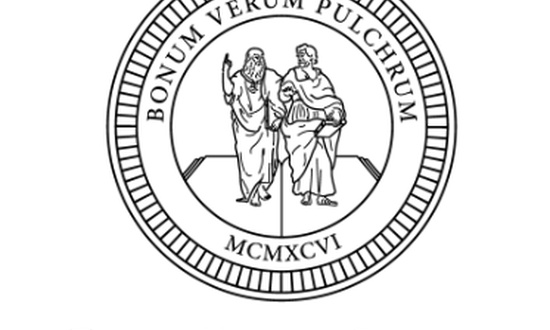Question from a reader:
Randy says in his article on inerrancy that there are no errors in the Bible, but in Deuteronomy 22:13-21 there seems to be a “virginity test” where the biblical authors thought that bleeding the first time you have sex (because of the hymen) is reliable proof that a person is a virgin. Modern medicine however knows that that is not a reliable indicator at all, and that there are many people who don’t bleed when they first have sex.
I’ve searched the internet and talked to people about this subject, but I don’t find most Christians’ answer to this challenge to be either convincing or honest. Most Christians try to explain it away by saying that there has to be witnesses to kill/stone the woman, but the facts are that if you look at the Hebrew in Deuteronomy 22:17 then you will see that the Hebrew word that is used in that verse specifically means a garment or cloth. So based on the verse it seems clear that the test that decides whether or not this woman will die is a cloth, likely with blood on it.
Some Christians also try to say that maybe the anatomy of the ancient Israelites were different or that they simply didn’t break their hymen because the women back then didn’t do so much strenuous activity. Which if we’re being completely honest, are not good arguments at all. Some also say that the law was never really put into practice.
Lastly, some argue that the law was there to protect women and to punish husbands who slandered them, and that one could easily fake blood on the cloth, but that is not a convincing argument either. Because that rule or test literally said that if women didn’t pass the test, then they could kill her by stoning her to death.
How do you interpret these passages in an honest way that still upholds the inerrancy of Scripture?
Answer from Doreen Button, EPM staff:
Thanks for your question; I can’t guarantee that I’ll answer it to your satisfaction, but I do promise to be honest.
Here’s the passage in full:
“Suppose a man marries a woman, has relations with her, and comes to hate her, and he then accuses her of shameful conduct and gives her a bad name, saying, “I married this woman and had relations with her, but I discovered she was not a virgin.”
“Then the young woman’s father and mother shall bring the proof of her virginity to the city elders at the gate and say to the elders, ‘I gave my daughter in marriage to this man, but he has come to hate her. And now he has accused her of shameful conduct, saying, “I discovered that your daughter was not a virgin.” But here is the proof of her virginity.’ And they shall spread out the cloth before the city elders.
“Then the elders of that city shall take the man and punish him. They are also to fine him a hundred shekels of silver and give them to the young woman’s father, because this man has given a virgin of Israel a bad name. And she shall remain his wife; he must not divorce her as long as he lives.
“If, however, this accusation is true, and no proof of the young woman’s virginity can be found, she shall be brought to the door of her father’s house, and there the men of her city will stone her to death. For she has committed an outrage in Israel by being promiscuous in her father’s house. So you must purge the evil from among you.” (Deuteronomy 22:13-21, BSB)
What, in your opinion, is this passage as a whole about? Is it about the scientific basis for determining virginity, or is it about protecting women from men who want an excuse to move on without them? The ESV Study Bible says of verse 19, “A hundred shekels is a very hefty fine…the law sought to deter men from making false allegations and pursuing easy divorce.” Personally, if I were a woman in that culture, and a cloth was my guarantee that I wouldn’t be stoned to death at some later date, I’d make sure that cloth was present at the consummation and put in good hands with witnesses immediately after (there’s no mention about what characteristic of the cloth was significant).
Your bigger question seems to be about biblical inerrancy in the face of differences between biblical descriptions and modern scientific wisdom. John Frame writes, “Inerrancy…means that the Bible is true, not that it is maximally precise. To the extent that precision is necessary for truth, the Bible is sufficiently precise. But it does not always have the amount of precision that some readers demand of it. It has a level of precision sufficient for its own purposes, not for the purposes for which some readers might employ it.”
The Bible must be read as it was intended. There are so many different types of writing—historical narratives, apocalyptic (revelatory), wisdom literature, etc.—by so many different people. Its cohesiveness is supernatural…no other book even comes close. From beginning to end it’s the story of God’s unending effort to bring humans back into relationship with Him so we can live the way we were made to live…happily ever after, with Him. It was never intended to be a science textbook, or even a handbook for daily living (although it contains much wisdom about both our wonderful planet and how to get along with our fellow Image bearers).
In 2 Timothy 3:16 Paul wrote: “All Scripture is inspired by God and is useful to teach us what is true and to make us realize what is wrong in our lives. It corrects us when we are wrong and teaches us to do what is right.”
Randy, in his booklet on inerrancy, writes:
“Unless God’s Word is fully trustworthy, inevitably I must rely upon myself or others to decide which parts I should trust and which I shouldn’t. If some of Scripture is false, I must develop some process whereby I determine which parts are true, since truth-seekers will not wish to embrace what isn’t true… Clearly those parts which are supposedly false cannot be authoritative. I cannot rely upon what I do not believe to be accurate. I cannot place myself under the authority of that which is historically false. I cannot build my belief system upon the sand and chaff of historical error. (See Francis Schaeffer’s Genesis in Space and Time on this subject.)”
Henry Ward Beecher made this profound statement, “Sink the Bible to the bottom of the ocean, and man’s obligations to God would be unchanged. He would have the same path to tread, only his lamp and his guide would be gone; he would have the same voyage to make, only his compass and chart would be overboard.”
I’ve been monumentally impressed by the quality of the questions in The Chosen 40 Days with Jesus devotionals. Just this morning I read in Book Three: “In your faith journey, what has been the bigger stumbling block to deepening your relationship with Jesus: not knowing the Scriptures or not obeying the Scriptures you know?”
Please don’t let your questions keep you from Jesus. He’s happy to answer your honest questions in His own way and time. And you’ll be happy when you give yourself heart and soul to Him, trusting in His goodness, power, grace, wisdom and mercy in every area of your life and hour of your day. “You will seek Me and find Me when you search for Me with all your heart” (Jeremiah 29:13).




